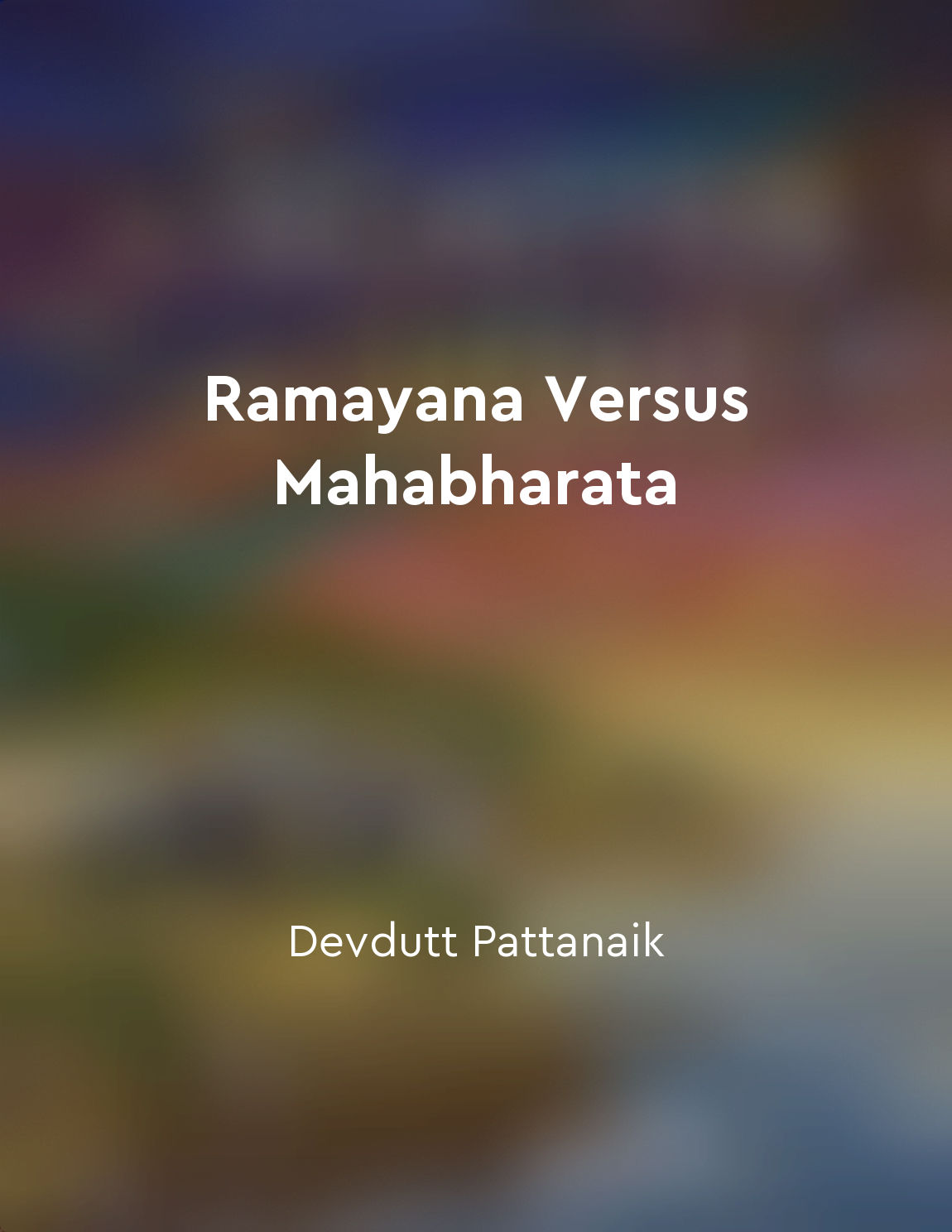Betrayal and loyalty from "summary" of The Mahabharata by Dwaipayana Vyasa
The tale of the Mahabharata is replete with instances of betrayal and loyalty, two contrasting themes that shape the course of the epic. Betrayal often stems from desires, jealousy, or conflicting interests, leading individuals to act against their own kin or dharma. One such betrayal is seen in the character of Duryodhana, who conspires to usurp the kingdom of Hastinapura from his cousins, the Pandavas, through deceit and treachery. Despite being aware of the rightful claims of the Pandavas, Duryodhana lets his ambition and envy cloud his judgment, resulting in a series of betrayals that culminate in the great war of Kurukshetra. Conversely, loyalty is exemplified by characters like Krishna and Karna, who remain steadfast in their support for the Pandavas despite facing numerous challenges and temptations. Krishna, in particular, serves as a beacon of loyalty and righteousness throughout the epic, guiding the Pandavas in their time of need and upholding dharma in the face of adversity. Karna, on the other hand, remains loyal to Duryodhana out of gratitude for his support, even though he is aware of his friend's unjust actions. Despite being on the wrong side of the conflict, Karna's unwavering loyalty to his friend and his principles earns him respect and admiration from both sides of the war.- It ultimately leads to destruction and suffering for all parties involved. On the other hand, loyalty, though challenging to maintain, is a noble virtue that inspires trust, unity, and mutual respect. Through the characters and events in the Mahabharata, we are reminded of the timeless wisdom that loyalty to dharma and righteousness will always triumph over the fleeting rewards of betrayal.
Similar Posts

Abduction of Sita by Ravana
The moment Ravana saw Sita, his heart was captured by her beauty. He knew he had to possess her, no matter the consequences. Dr...

Love and forgiveness triumph over hate and vengeance
In a world filled with darkness and the desire for revenge, it can be easy to lose sight of the power of love and forgiveness. ...
The exile of Pandavas
The Pandavas faced many trials and tribulations throughout their lives, and one of the most challenging periods was their exile...

Role of the spiritual master
The spiritual master is the guide, the guru, who helps the disciple navigate the path of spiritual realization. The spiritual m...

Love can heal wounds from the past
In the midst of pain, love is the unexpected visitor that offers solace and comfort. It has the power to mend even the deepest ...

Celebrating love and loyalty
The concept of celebrating love and loyalty is woven intricately into the fabric of 'Scion of Ikshvaku'. This theme is not just...

Ramayana's Sita symbolizes purity, Mahabharata's Draupadi symbolizes resilience
In the Ramayana, Sita is portrayed as the epitome of purity. She is the ideal wife, devoted to her husband Rama and unwavering ...

Ramayana emphasizes righteousness, Mahabharata explores complexity
In the Ramayana, righteousness is the primary focus of the narrative. The story revolves around the character of Rama, who is p...

Ramayana is idealistic, Mahabharata is realistic
In the Ramayana, characters are portrayed as either good or evil, with little room for ambiguity. The ideals of dharma and righ...
Karna's tragic fate
Karna, a central character in the epic Mahabharata, is known for his tragic fate which unfolds throughout the story. Born to Ku...


